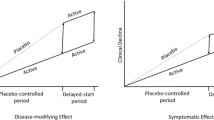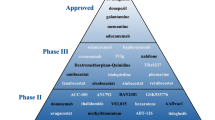Abstract.
Based on observations from neuropathology, epidemiology, and in vitro and animal experiments, the inflammatory component of Alzheimer’s disease (AD) has been considered a compelling target for therapeutic intervention. However, a summary of all published trial reports to date suggests that AD patients do not benefit from treatment with anti-inflammatory drugs. In this brief review, we try to reconcile these sobering trial results with recent observations from basic research and epidemiology that continue to strengthen the idea that inflammatory mechanisms play an important role in the pathogenesis of AD. We review the possibilities that (1) not all components of the inflammatory response in AD are detrimental, (2) beneficial effects of anti-inflammatory drugs may not be mediated by inflammatory pathways, and (3) the timing of the intervention should be in the earliest stages of the pathogenesis of AD, perhaps even before the first symptoms emerge.We conclude that studies on primary prevention of AD are the logical next step in testing the inflammatory hypothesis of AD.
Similar content being viewed by others
Author information
Authors and Affiliations
Corresponding author
Rights and permissions
About this article
Cite this article
van Gool, W.A., Aisen, P.S. & Eikelenboom, P. Anti-inflammatory therapy in Alzheimer’s disease: is hope still alive?. J Neurol 250, 788–792 (2003). https://doi.org/10.1007/s00415-003-1146-5
Received:
Revised:
Accepted:
Issue Date:
DOI: https://doi.org/10.1007/s00415-003-1146-5




